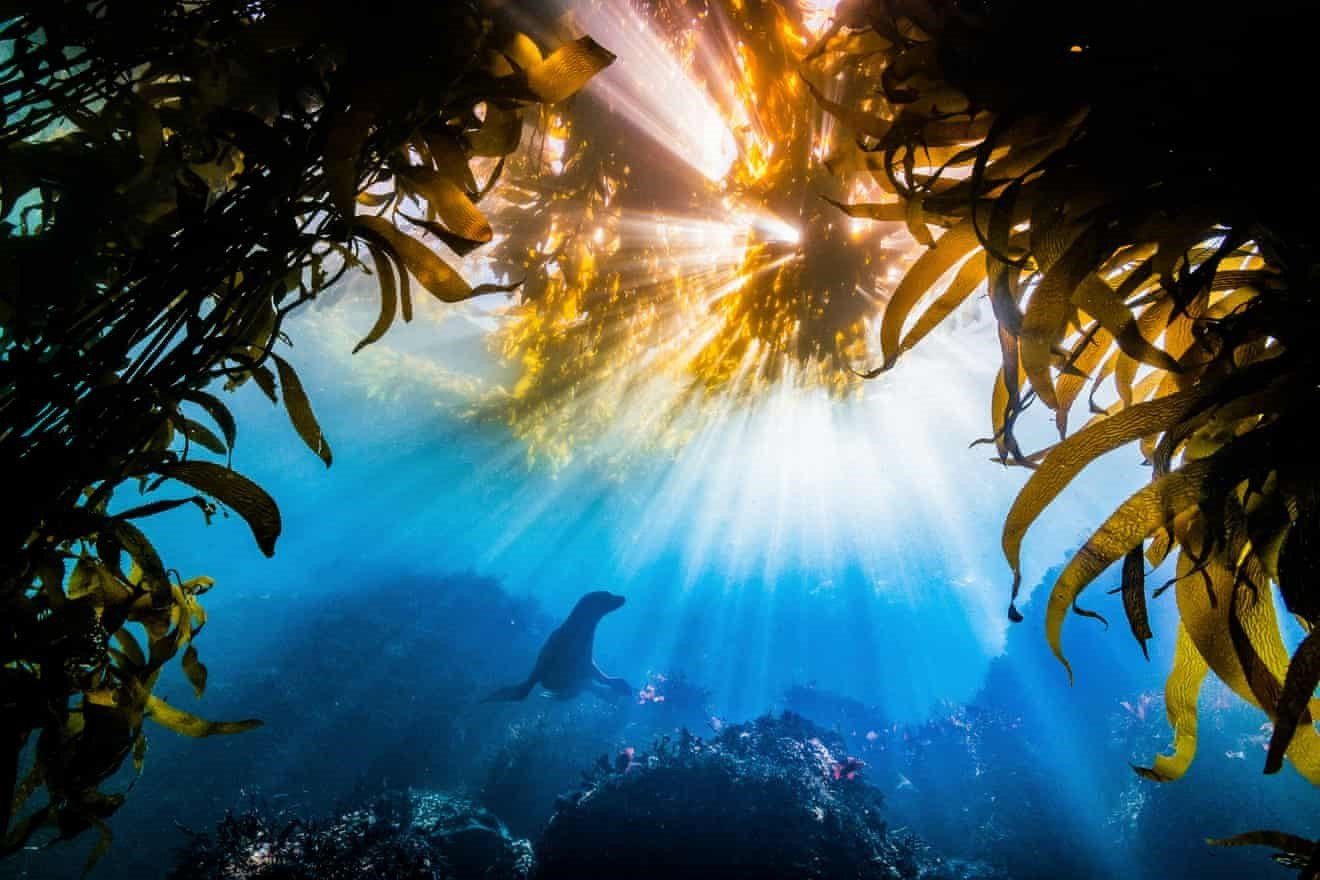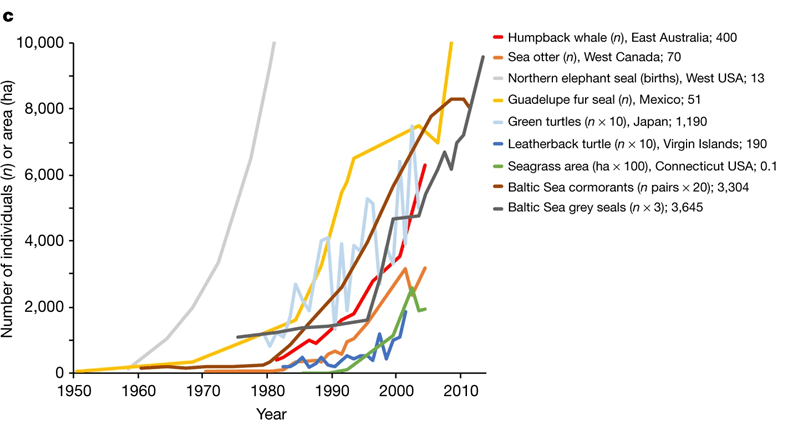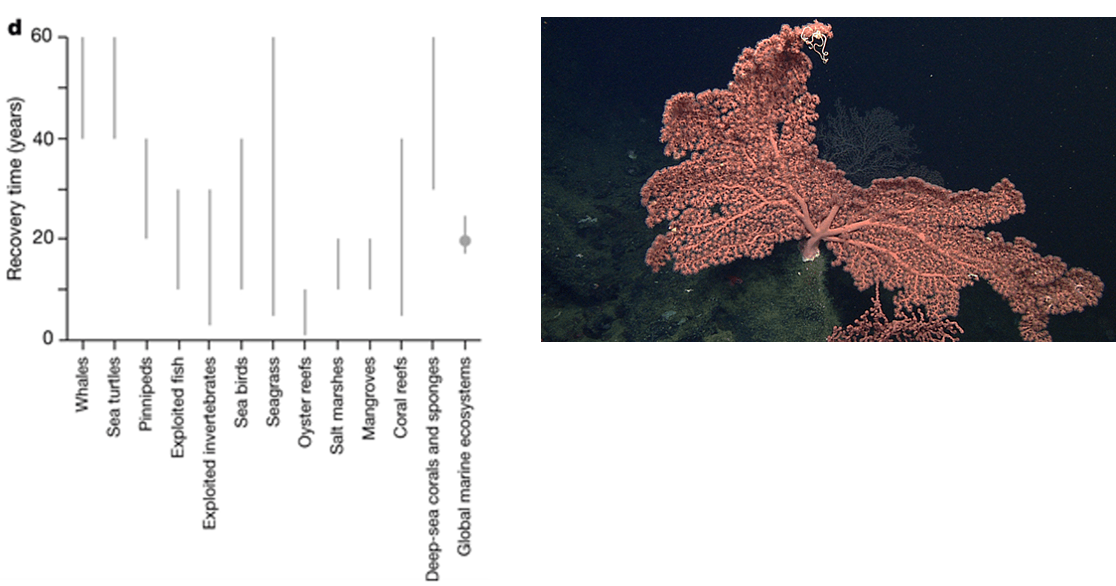Pathway To the Recovery of Marine Life by 2050!
The United Nation’s 2030 Sustainable Development Agenda puts re-building marine life at the centre of its SDG 14, with aim to “conserve and sustainably use the oceans, seas and marine resources for sustainable development”. A recent research paper has examined the recovery timeframe that is required to reach a recovery of marine systems. Based on their analysis, a substantial recovery for 90% of marine species and habitats is possible by 2050, requiring global collaborative effort among local, regional, and national stakeholders.
The recovery of marine life has garnered a plethora of attention due to a growing awareness of the scope and magnitude of the cumulative impacts of human pursuit to the marine environment. These impacts are often significant, ubiquitous and ever-changing in nature, and have resulted in marine habitat and species degradation, and in some cases ecosystem collapse.
Today, a 1/3 of fish stocks are overfished, up to 50% of vulnerable marine habitats are beyond repair, extinction risk is rampant among marine species and shelf sea environments are subject to or at risk of pollution, eutrophication and anoxia. Meanwhile, the plight against climate change that all living beings face further hinders ocean’s resilience, biological diversity and productivity.
A new paper published in Nature , led by Dr. Duarte from the King Abdullah University of Science and Technology, compiled and analysed historical trends in the recovery of marine species and habitats as a result of conservation efforts. Assessing this information, a timeline of recovery was generated in which most marine systems could be functioning and resilient if appropriate conservation efforts are undertaken.
Restoration projects have grown considerably over the past two decades, displaying the indisputable resilience of the ocean to pressures. Successful projects have focused on habitat restoration, pollution risk and extinction risk reduction.
Among successful cases, spectacular recoveries have
occurred in several highly over-exploited marine populations following reduced
pressures. The Australian humpback whale population has recovered by up to 90%,
with an annual abundance growth of 13%. The Northern elephant seal population went from
less than a hundred individuals in 1880 to over 200,000 individuals today. Grey
seal population in the Baltic and Eastern Canadian waters have increased by up
to 823% and 1,410% since 1977, respectively
Based on their analysis, a substantial (>50-90%) recovery by 2050 is possible for 90% of marine biodiversity and habitats. 21 years is the minimum substantial recovery time for 90% of marine life. Due to ongoing pressures, such as climate change and declining populations, a more realistic goal is a substantial recovery by 2050.
However, not all marine systems will be recoverable by 2050. The recovery time of marine habitats and biodiversity is dependent on their life history and current rate of depletion. For example, marine megafauna recovery time can range from several decades in pinnipeds to more than a century in some whale species. While species and habitats that have slower growth rates such as coral reef ecosystems and deep-sea environments will require a longer recovery time-frame. In particular, deep sea environments can take centuries to build, and coral reefs are subject to great ongoing cumulative pressures. Only a partial recovery of these can therefore be expected by 2050.
To re-build marine life, efforts must be targeted at the following marine components: seagrass, mangroves, coral reefs, saltmarshes, kelp, oyster reefs, fisheries, megafauna and deep-sea systems.
Appropriate actions to enable the recovery of marine systems by 2050 were identified under “ recovery wedges”, rebuilding each marine component at an annual rate of 2.4% or above. Protection of species and habitats, harvesting wisely, restoring habitats, reducing climate impacts and pollution risk encompass the building blocks to success.
Roadblocks that would prevent recovery form part of this roadmap. A key caveat for success is the climate wedge, requiring concerted efforts to reduce the release of greenhouse gases to ensure climate targets are met. There will be unavoidable impacts of climate change on marine life such as in their distribution. Thus, the ability to anticipate changes followed by appropriate conservation measures will be essential, as well as the management of resources needed to meet the projected human growth of over 9 billion by 2050.
The pathway to rebuilding marine life is within reach but will require a strong narrative, a transparent collaborative and coordinated effort among citizens, industries, non-government and government bodies, supported by an evidence-based framework.
For an in-depth experience, a video to a webinar discussing “Rebuilding marine life” starring Dr Carlos M. Duarte:
References:
Duarte, C., Agusti, S., Barbier, E., Britten, G., Castilla, J., Gattuso, J., Fulweiler, R., Hughes, T., Knowlton, N., Lovelock, C., Lotze, H., Predragovic, M., Poloczanska, E., Roberts, C. and Worm, B. 2020. Rebuilding marine life. Nature, 580 (7801), pp.39-51.
MBARI. 2013. Learning how to restore deep-sea coral communities. MBARI – Monterey Bay Aquarium Research Institute. Retrieved from: https://www.mbari.org/coral-translocation/
SHARE THIS ARTICLE
















